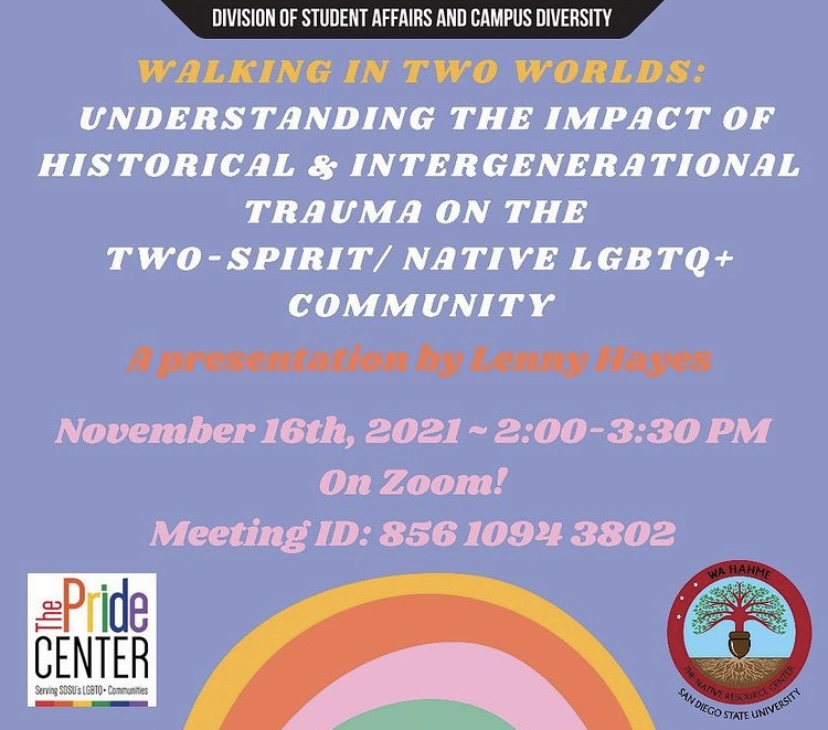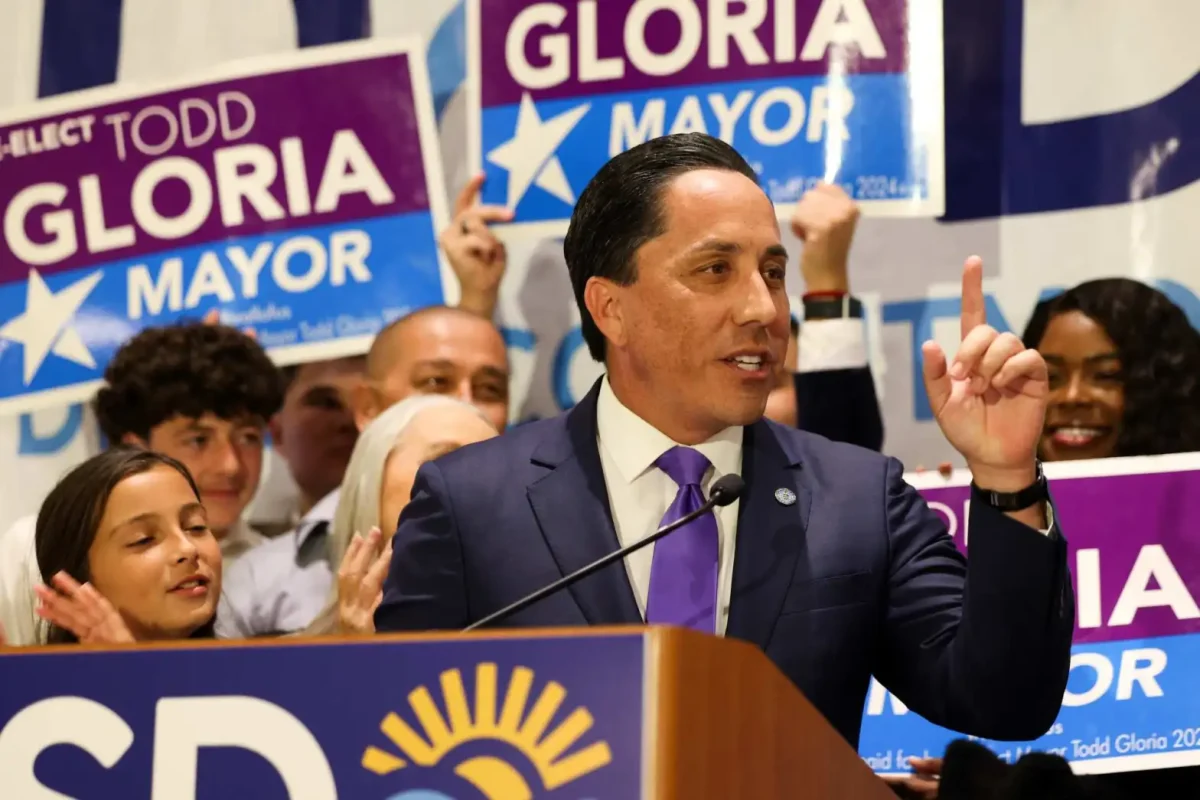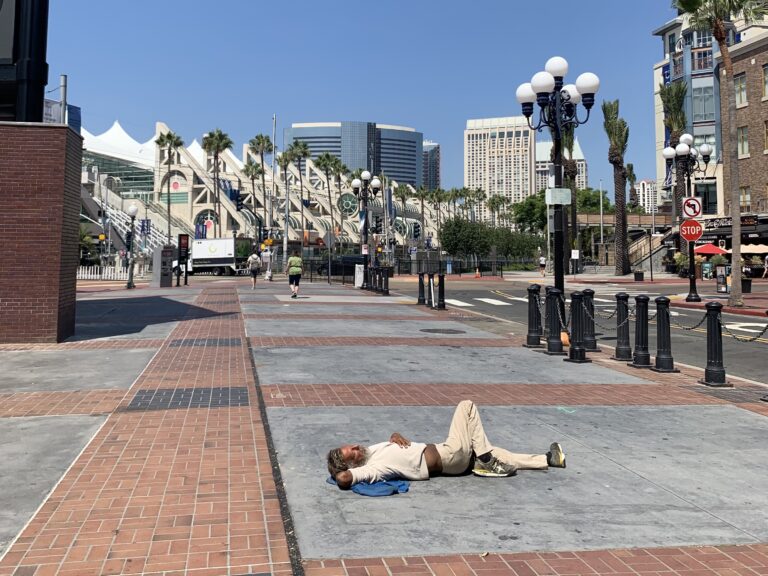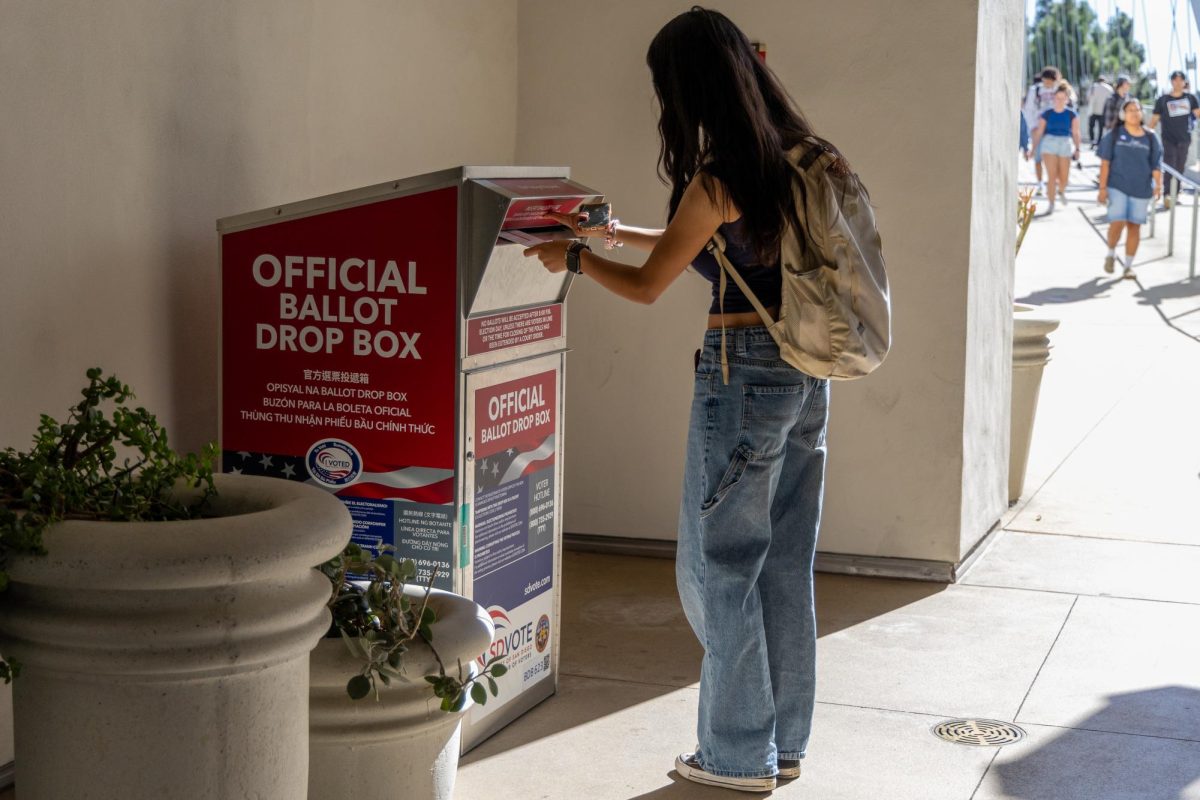The Native Resource Center (NRC) hosted a talk with Lenny Hayes about Two-Spirit identity in the Native community.
The NRC hosted the conversation on Nov. 16. It was titled, “Walking in Two Worlds: Understanding the Impact of Historical and Generational trauma on the Two-Spirit/ Native LGBTQ+ Community.”
Hayes is the founder of Tate Topa Consulting and specializes in “mental and chemical health issues” according to the Tate Topa website. During the presentation, Hayes also shared a lot about his background and what he specializes in. His work often centers around sexual violence of Two-Spirit/LGBTQ individuals in the Native population. Hayes is also part of the Sisseton-Wahpeton Oyate of the northeast corner of South Dakota.
The term Two-Spirit, he explained, has a lot of history behind it. In short, the term refers to people who identify with both a masculine and feminine spirit, and has been used to describe sexual orientation and gender identity. Hayes also made clear however, not all Native communities use the term Two-Spirit, for example, the Navajo peoples. He also shared that some communities have even up to 15 genders.
Amidst the group of 46 attendees, Hayes also shared that the conversation around pronouns needs to be nuanced. He told the group pronouns are a result of colonization and one’s identity is not tied to their gender.
During the conversation, Hayes gave examples of Two-Spirit individuals who are recognized today. One of these individuals was known as We-Wha from the Zuni (a specific Native American community). Another individual mentioned by Hayes was Hastiin Klah from the Diné peoples. Hayes mentioned he respected Klah for their mastery of eight different spiritual ceremonies.
Both these individuals lived and died within the 19th and 20th centuries, but Hayes said the interactions between Two-Spirit individuals and Native Americans run deep. Throughout history, Hayes mentioned, many of these individuals were respected and even when they were separated from the main community this was not always “a bad thing.” The peoples within the communities would interact with the Two-Spirit peoples out of their own desire to do so, and this fostered good relationships.
Mateo Gin Tarango is a program assistant at the Native Resource Center and helped facilitate the event. Tarango is also a Elymash Yuuchaap (EY) Mentor for the Native Resource Center. Tarango is a fourth year student studying Recreation & Tourism Management, with an emphasis in Sustainable Tourism Management.
“The work that Lenny does is not always easy, as it often involves intergenerational trauma and tragedy, but it is vitally important,” Tarango said.
Tarango went on to say they were happy about the turnout and encouraged more students to come to events like that.
“These are safe spaces for all people to discover something new and hear different perspectives,” Tarango said.
Tarango said even though the work Lenny does is not always easy and involves generational trauma and tragedy, it is also vitally important.
“One of the things that stuck with me the most was to learn about the various historical figures, ancestors, and community leaders from Indigenous communities that identified as Two-Spirit,” Tarango said, “It’s so important that they are recognized and remembered for who they were and for their contributions to their communities.”
Hayes said it’s important for people who identify with the Two-Spirit community to be the ones leading the conversation about the community.







